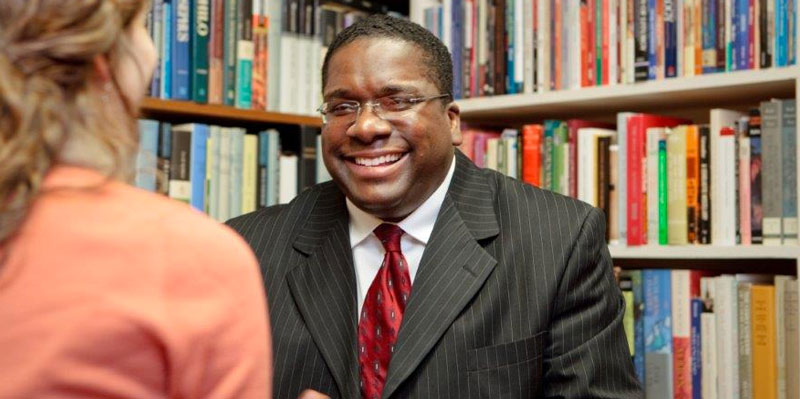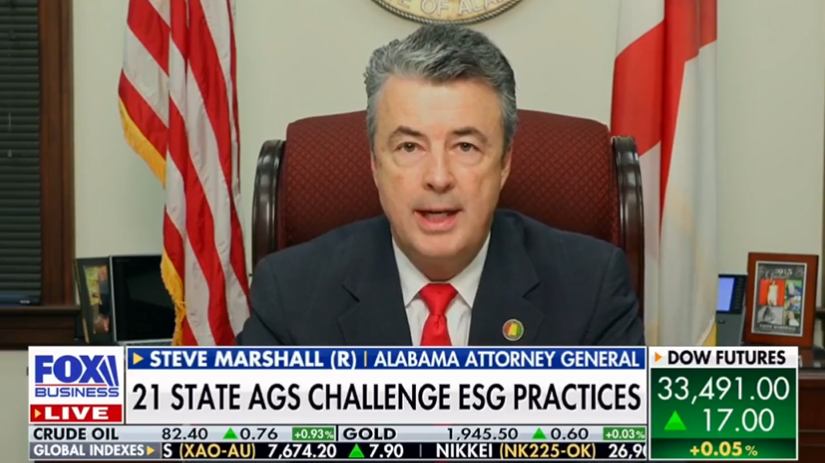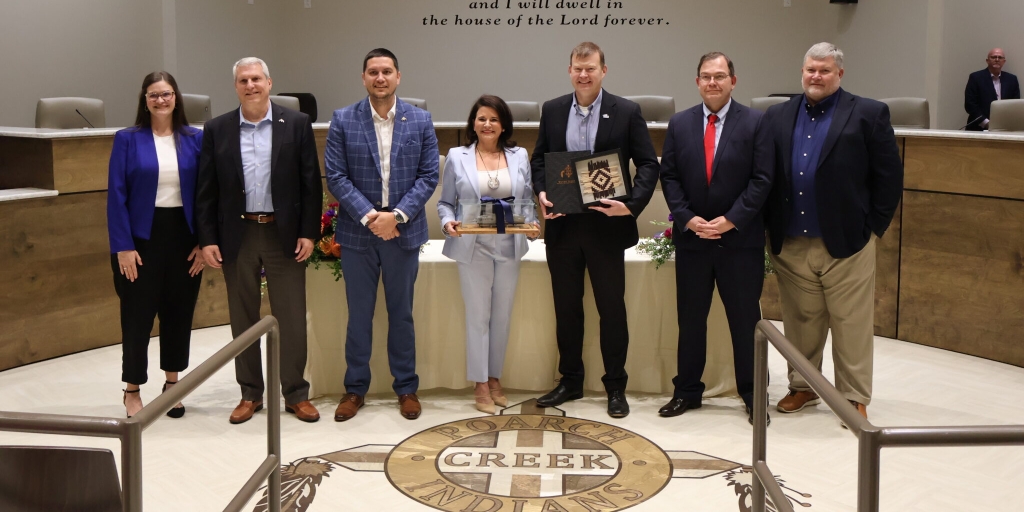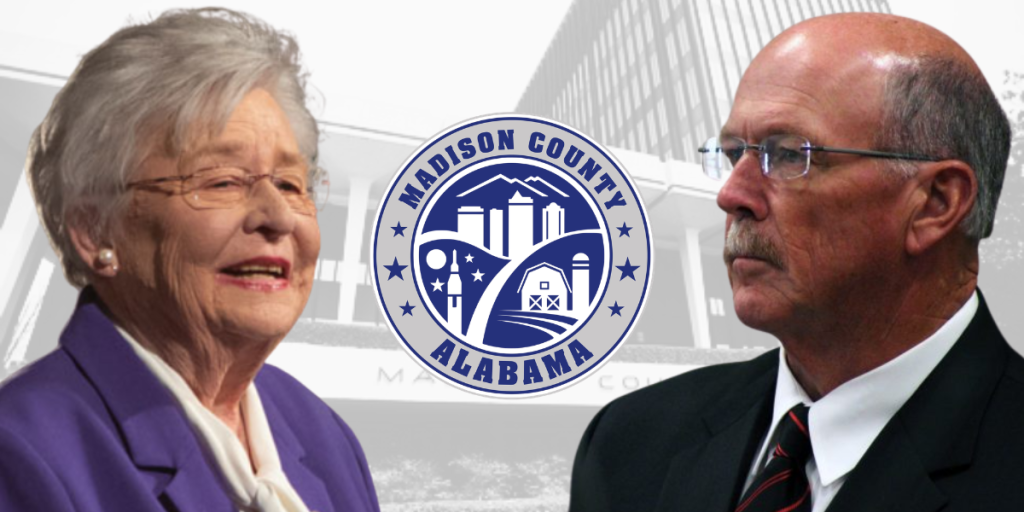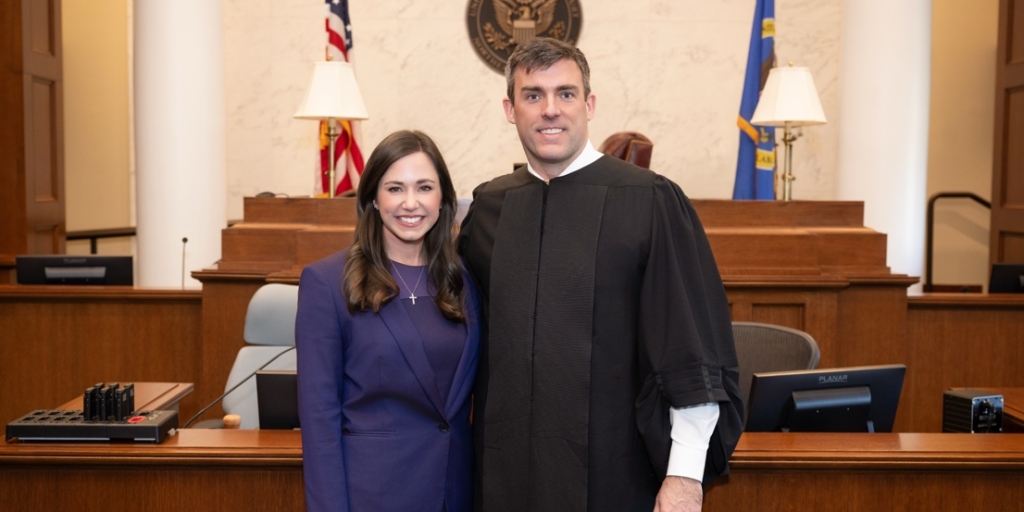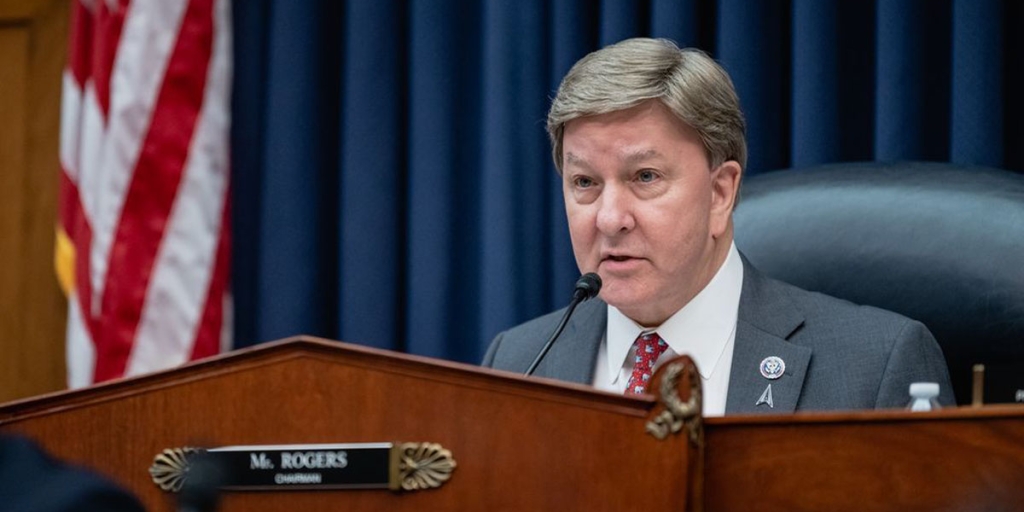Dr. Will Boyd, the Democrat nominee for lieutenant governor, recently responded to the questionnaire prepared by the Alabama Policy Institute and Yellowhammer News. His answers are below.
POLITICAL PHILOSOPHY
Question: What is your political philosophy and, if elected, how would it shape the way you lead as lieutenant governor?
Boyd: My political philosophy would likely be described as pragmatic as I consider myself a practical progressive. As Lieutenant Governor, I will put people over politics—concerning myself with the needs of all Alabamians versus a political platform. My compassion would lead me to work tirelessly to help every Alabamian seeking work get employment. My empathy would fuel my drive to expand Medicaid, protect of the Education Trust Fund many Alabamians depend on, and work towards a fairer tax system that does not unfairly burden low- and middle-income families while providing tax breaks for the rich.
How have you demonstrated your commitment to your political philosophy?
Over the past ten years alone, I have strongly supported policies that benefit those I was elected to serve or seek to serve. As an elected official, I listened to the concerns of voters on “both sides of the aisle” and supported projects or policies that provided for the needs of the many—even if it such support led to criticism from my own party.
What should be the role of the lieutenant governor?
While my campaign motto is “leading Alabama forward,” my aim is to “be number one at serving as number two.” Said differently, I want to employ my servant-leadership experience as a pastor and public servant to support the Governor in leading the State of Alabama with the understanding that my role is to serve as president of the Senate and make nearly four hundred appointments to more than one hundred and sixty agencies, boards, and commissions. Of course, I am prepared to step in at any time and serve as Alabama’s chief servant and executive should the Governor be rendered unable to execute her of his duties.
What is the most challenging social issue facing families in Alabama? Does government have a role in helping to solve that problem, and if so, what would you propose?
I believe the most challenging issue facing families in Alabama is still racial inequality. A lack of inclusion has resulted in many Alabamians being left behind. Unemployment rates are higher in African American communities. Many people of color are without healthcare and continue to be locked up disproportionately to their counterparts. On the campaign trail, I have noticed that predominately African-American communities have been left to tackle some of the most complicated environmental issues that have disgracefully and unethically been caused by chemical spills, toxic dumping, and infrastructure deficiencies that resemble those of developing countries.
Lack of environmental cleanup and protection has purportedly resulted in central organ complications, exposure to carcinogenic materials, nausea, and death. All of these problems could easily be remedied by legislators and the government agencies working to provide every Alabamian with a fair shot to achieve the American dream—no matter the color of skin.
As Lieutenant Governor, I will not only use my bully pulpit to advocate for high speed rail to improve the odds of job acquisition or an educational lottery that will help provide needed funding to public schools, I will also advocate for broadband and more mobile towers in the black belt. I will work tirelessly to ensure that STEAM (Science, Technology, Engineering, Arts, and Math jobs) are not reserved for Alabama’s biggest metropolitan areas; but, I will fight to make sure these STEAM jobs are also available in the rural areas of Alabama. After all, there is no reason why any Alabamian who wants to work should live in poverty, be too far from a good public school, or be without affordable healthcare.
ETHICS
According to the Center for Public Integrity, Alabama receives a D+ grade for integrity. When the state is in the national news, it is often because of a lack of ethical behavior by state officials or candidates. How would having you as Lieutenant Governor improve our state’s image nationally and, more generally, what suggestions do you have to ensure integrity throughout the state government?
In the absence of exemplary leadership in the “highest offices” of the State of Alabama, I believe we need to restore public trust through ethics reform. The recent controversies surrounding moral failures in all three of Alabama’s branches of government have presented the state with a greater need for demonstration of ethical behavior and social responsibility. I strongly believe that leadership derailment often occurs as there is a lack of articulation of values and beliefs or no demonstration of the same.
Public trust cannot be restored by state officials and candidates by simply placing religious monuments around government buildings or even running political advertisements with candidates holding The Bible in hand. Public trust will not simply be restored with an influx of “religious” leaders into government. As a bishop and professor, I believe that ethics reform involves much more than posting codes of conduct and ethics in the chambers and halls of government or demanding more transparency. I strongly believe, and argue as much in my publications, that public trust in our state officials and candidates will come as we, state candidates and officials, embody the highest levels of ethical responsibility and engage in exemplary leadership practices which ultimately look out for the well-being of all Alabamians.
As the thirty-first Lieutenant Governor of Alabama, I will work to restore public trust, character and integrity statewide by:
— Pushing for reforms which lead to ethical and social audits of government offices.
Ensuring that state officials, like business executives of for-profit organizations, are socially-conscious of the concerns of the citizens, employees and all (domestic and foreign) who stand to gain or lose from the decisions they make.
— Encouraging government offices and agencies to benchmark their ethics and behavior to those of world-class providers of goods and services.
— Encouraging all elected officials to become critically reflective of their own actions in public and “behind closed doors”, seeking feedback from the citizens and promoting higher levels of their accountability to the people which elected them to serve our state and nation.
As Lieutenant Governor, you will be responsible for appointing more than 400 people to state positions. How can Alabamians be sure that you will appoint qualified and experienced candidates and not simply supporters from current or previous electoral campaigns?
Nepotism and “pay to play” tactics have rendered Alabama officials vulnerable to bribery, corruption, and other unethical practices. As an administrator, manager, executive and overseer working within for-profit and nonprofit organizations, I am required to ensure that job applicants possess the right skills and qualifications to fill job vacancies. Committed to the overarching goals of the organizations I served, I never have or will appoint anyone who is not qualified or experienced. Neither will I appoint someone solely on their current or previous connections to my electoral campaigns. As Lieutenant Governor, I will be held responsible for every appointment I make. Therefore, I am committed to seeking out the most qualified and experienced woman or man—no matter his or her race, creed, religion, sexual orientation, or political affiliation.
EDUCATION
PUBLIC EDUCATION
Alabama is ranked number forty-seven on U.S. News and World Report’s list of Best States for Education,and ranked number 1 in Pre-Kindergarten quality. As far as public education reforms, there have been many suggestions for improvement including increased investment in STEM education, distance learning, and reforming teacher tenure. What reforms would you propose or support to improve public education and prepare Alabama’s children for school success and lifelong learning?
While serving in higher learning, I had the pleasure of serving as Dean of Student Success while also teaching Business Management. My responsibilities included oversight of career services and providing professional assistance for student success. I have a passion for preparing students for educational success and connecting them to the right people to help improve job acquisition. I know many Alabama educators share my beliefs.
I believe Alabama has the best administrators and educators; however, our legislators have not chosen to make funding of public education a priority. We cannot spend more money on housing a prisoner than educating a child in public school system and expect to succeed. We cannot raid our Educational Trust Fund or allow tax credit scholarship programs to pour money into schools where financial assistance is not needed.
My four year-old just graduated from a Pre-Kindergarten program. She was truly blessed to have the opportunity to matriculate through such a program; however, every four year-old in Alabama should be afforded the same opportunity without respect to level of household income. Pre-K must be fully funded statewide and this could be achieved through an Educational Lottery. As it relates to public education reforms, Alabama needs to rethink how it provides education.
I am a product of both traditional “brick-and-mortar” and nontraditional “brick-and-click” schools of higher learning. I want Alabamians to be afforded the same opportunities to become continuous learners. While there are nearly seventy-five thousand Alabamians out of work, there are more than thirty thousand jobs that have remained unfilled because of a lack of the right skillsets. We don’t need to teach students to test. We need to introduce students to learning experiences and programs that prepare them for changing economies and global marketplaces. We need to invest in STEM and STEAM programs. We need to explore ways to improve both our pedagogy (educating of children) and andragogy (educating of adults).
As Lieutenant Governor, I intend to introduce Alabama to my “Blue and Gold” program that brings educators together with blue collar workers to ensure that students are able to find more jobs in the private sector upon completion of high school and community college while also readjusting blue color workers for a greener economy through trade readjustment.
In order to move Alabama forward, we need to rethink how we prepare inmates for reentry into society and the workforce. We must introduce postsecondary learning to prisons to reduce recidivism. As we are increasing Alabama Department of Corrections salaries, we need to also raise the salaries of teacher to the level of a living wage. It is sad that our educators have to work two or more jobs to reach a living wage.
Having served as a Dean of Student Success for a private college, I propose that state educators in primary, secondary, and postsecondary schools partner together to:
— Identify ways to better engage all students and parents through targeted electronic messages or social networks such as Facebook,
— Find ways to help the financially at-risk successfully persist to graduation,
— Help students discover their strengths or areas of interest sooner,
— Provide psychological counseling to students who willfully disrupt the learning experience or purposefully do not engage in the classroom,
— Create special summer college prep programs for first generation college students,
Connect college students to the right people and resources within their community to improve the chances of job acquisition in the State of Alabama,
— Benchmark test performance against similar sized communities in the state in efforts to provide continuous improvement and hire the best teachers and administrators,
— Provide Career Services support to all juniors and seniors in High School and College (i.e. resume and cover letter training, graduate school and career advising, transportation to job fairs, and access to internship/job posting databases), and
— Create a nonprofit State Board of Education Counselors similar to the Service Corps of Retired Executives (SCORE) dedicated to education and career advising.
Through these collaborative efforts, I believe Alabama will see:
— Students will be able to sooner discover the places they can go with their interest, hobbies (ultimately leading to a more satisfied workforce),
— A decrease in class interruptions and fewer altercations with teachers and other students (on and off campus, including gang-related activities),
— Students/Parents finding it less needful to seek out private schools outside their own communities,
— Elementary, Middle and High School educators gaining a better understanding the effectiveness of their teaching pedagogy, perhaps even better understanding the educational challenges for students in a geographical region,
— Improved retention (and satisfaction) of students attending community, private and public colleges as there is less “run around” required to register for classes or gain access to services needed on campus,
— Better prepared job seekers (the best prepared are likely to acquire the best paying jobs), and
Improved retention of Blacks, Hispanics and other minorities.
EDUCATIONAL CHOICE
In 2015, Alabama became the 43rd state to approve legislation to authorize charter schools. Many states now allow parents to transfer their child from a failing public school to a non-failing public school, to utilize education savings accounts or school vouchers, or to send students to alternative schools using tax-credit scholarships, allowing parents greater control in their child’s educational endeavors. How should educational choice fit into Alabama’s education system?
The Alabama State Department of Education has published findings that a number of public schools have, over many years, failed to make their Adequate Yearly Progress (AYP) goals. National Assessment of Academic Progress (NAEP) data has also reflected somber proficiency levels in math, science and reading for elementary students. Having the choice of a public charter school has been well received by many as research has reflected public charter schools have a positive effect on college success indicators like ACT scores and graduation rates.
At first glance, it seems appealing to provide parents and students with more choices to control educational endeavors. Regrettably, the policy issues regarding educational choice in Alabama should carefully be considered. While the assumption that spending more money public students has been hotly debated, it is a fact that tax-credit scholarships, intended to provide thousands of students in failing school districts with increased funding, have gone to a high number of students who are not even enrolled in failing schools.
While Alabama should offer its educators compensation that is comparable or even more favorable than other states, the legislature should ensure that education options like tax credit scholarships are not being used merely to provide individuals and business with financial incentives at the expense of Alabama’s public school system. I believe that public schools should be at the heart of every Alabama community. Every Alabama child deserves access to a quality school—no matter the geographical location.
FISCAL RESPONSIBILITY
TAX CODE
In Alabama, the bottom 20% of earners pay 10% of their income in state and local taxes while the top 1% only pays 3.8% of their income in the same taxes. If elected, what would you propose be the future of the state income tax and do you see this disparity as a problem?
Alabama has an upside-down tax system that is unfair. It is regressive because lower income earners pay more in sales taxes than higher income earners. Proportional income taxes, though viewed as fair to some, don’t offset the revenues lost to the tax breaks provided to higher income earners and businesses that do not pay their fair share in taxes. The wage gains of low- and middle-class Alabamians cannot keep pace with inflation. Even worse, Alabama’s tax system fails to keep pace with the State’s needs as 57% of the top fifth of income earners only pay 44% of the state and local taxes collected.
In order for Alabama to avoid structural deficits, I propose that Alabama takes a serious look at moving to a proportional and progressive tax system that will fairly tax all Alabamians rather than saddling the cost of Alabama services to the backs of low- and middle-income households. Some feel it would be too difficult to make changes in the Alabama tax structure as it would require changes to the Alabama Constitution. However, as Lieutenant Governor, I support the following proposals presented by Arise Citizens’ Policy Project which includes:
— Increasing the personal exemption,
— Increasing the standard deduction,
— Increasing the dependent deduction,
— Making Alabama’s deductions and exemptions keep pace with annual cost of living increases,
— Create a state earned income tax credit, set at 10%, to help low-income working families offset the cost of high sales taxes, and
— Create a new rate structure.
STATE AND LOCAL TAXES
According to the Institute for Taxation and Economic Policy, Alabama boasts the 12th most regressive state and local tax system in the nation. One contributor to this ranking is our combined 9% grocery tax (only four states tax groceries more than Alabama). In 2017, Governor Bentley proposed decreasing the grocery tax by 4%. If you are elected, would you suggest changes to the grocery tax?
Alabama has a regressive state and local tax system. Alabama’s regressive tax system results in $100 in groceries costing $110. Regressive state and local taxes hit low- and middle-income families hardest in Alabama as much of their income is spent on goods that are taxed at this high rate. When elected Lieutenant Governor, I will work hard to support any legislation that seeks to do away with the grocery tax. Alabama remains one of less than a handful of states that fully tax groceries. There is no reason why Alabama should tax low-income families even deeper into poverty.
INFRASTRUCTURE INVESTMENT
US News ranks Alabama’s roads and bridges as the 16th and 21st best in the country, respectively. Even so, every neighbor of ours—except Mississippi – has roads and bridges that rank in the top 10. Alabama also ranks 45th in terms of broadband access. If elected, what would you prioritize as the most important infrastructure investment projects, and what innovative options would you propose to fund such projects?
While Alabama’s roads and bridges have been ranked as 16th and 21st in the country, respectively, much of our infrastructure is outdated. Alabama needs broadband, energy, transportation, water, and wastewater infrastructure updates.
Alabama needs to modernize its infrastructure with prioritization being placed on broadband service. It is awful that there are areas of the state where there is no mobile phone reception, no broadband and concern about clean drinking water. Kids can’t search the internet for nontraditional learning at home as their parents have to visit local restaurants with Wi-Fi just to complete job applications. How can we expect businesses to be attracted to these areas to infuse more money for infrastructure improvements?
While Alabama roads and bridges will always be under construction, I believe it is time legislators progressively look to investing in high speed rail to provide Alabamians with greater access to employment opportunities while also lessening the amount of traffic on state roads and bridges. Each year, Alabama leaves millions in federal funding on the table each year by not investing in a high speed intercity rail system like other states. A high speed rail project in Alabama could create more than 20,000 permanent jobs over a 10 years of construction, cause a rise in property values near stations, lower fuel emissions, and shorten commute between major cities.
STATE-RUN LOTTERY
Most states resort to installing a state-run lottery to increase revenue and pay for government projects. Do you support a lottery to solve the state’s fiscal woes? Why or why not?
I support a state-run lottery—especially an education lottery as Alabamians have expressed their frustration educating the children of Tennessee, Georgia, and Florida. An educational lottery, restricted solely to educational use, would help fully-fund pre-K, invest more in science, technology, engineering, arts, and math programs that better prepare students for job acquisition, help provide public schools more wraparound services, and help provide teachers with salaries competitive with other states.
FEDERAL DEPENDENCY
Alabama is currently the fourth most federally dependent state in the country. What do you think should be the federal government’s role in our state finances?
As previously mentioned regarding public transportation, Alabama needs to progressively work towards getting federal dollars to invest in infrastructure projects like high speed rail that will move the state forward. While other states receive an average of one quarter of their budgets from the federal government, Alabama receives nearly forty percent. This equates to two dollars from the federal government for every five dollars Alabama spends. While Alabama depends on this funding to support basic services, we need to be more progressive and consider looking for more matching grants and funding for infrastructure improvements. While I support the federal government’s role in supplying federal grants, I believe Alabama needs to do a better job identifying opportunities to contribute more to federal programs that provide “matching dollars “back to the state.
THE RIGHT TO WORK
JOB CREATION
The Census Bureau suggests that Georgia, Florida, and Tennessee are creating more jobs than Alabama. As lieutenant governor, how would you foster job creation that rivals our neighbors to the north, east, and south?
While I oppose disproportionate tax cuts, I believe tax rate reductions can lead to economic expansion. I support increasing the money supply at state and local levels. I also support tax increment financing and offering incentives to businesses to attract them to Alabama.
“Leading Alabama forward” requires supporting our workforce, especially our manufacturers. We need sound policies, modernization of infrastructure (including broadband in rural areas), detangling of regulations, education of the next generation of manufacturing, developing alternative energy sources, promotion of global trade, and even provision of tax incentives to businesses that truly provide job creation in areas where economic growth has been nonexistent.
Having served as a city councilman and an assistant adjunct professor of Business Management, I know the effectiveness of offering incentives to attract businesses to an area seeking economic development; however, I believe a better way of attracting a good workforce is ensuring that these communities seeking economic development have great education systems to attract a good workforce.
ROLE OF LABOR
Alabama is a right-to-work state. In your opinion, what is the proper role of organized labor and should Alabama remain a right-to-work state?
I am a “Friend of Labor.” I seek to be a strong voice for Alabama’s Working Families. I know from experience that organized Labor is one of the keystones of our Democracy. I will fight for Alabama’s working families as Lieutenant Governor by standing in solidarity with Labor to strengthen and defend worker’s rights to organize and bargain collectively. I will demand economic freedom for Alabama’s working families as support an increase in the Federal Minimum Wage to achieve a Realistic Living Wage. I have pledged to stand with Labor on the issues of the Trans-Pacific Partnership (TPP), Employee Free Choice Act, Banning Striker Replacement, Davis-Bacon, Safety Standards and Fair Trade. I have been regarding as a “friend of Labor” who will fight for Alabama’s working families. I will stand with Labor to demand that the exporting of jobs overseas be stopped and that more good paying jobs are created here in Alabama.
OCCUPATIONAL LICENSING IN ALABAMA
The state of Alabama licenses 151 different occupations and over 20% of Alabama workers need a license to work. If elected, how would address these regulations—regulations that both the Obama and Trump administrations have regarded as problematic?
Occupational licenses benefit consumers by insuring that products or services are offered with quality and safety. While occupational licensing is needed for practitioners in higher skilled occupations, Alabama has requirements for licenses in over 150 different occupations, presenting barriers and hurdles for practitioners like auctioneering, barbers, locksmiths, manicurists, massage therapists, and other fields. These fees, erect barriers and exact burdens for people seeking to enter professions that provide services to Alabamians.
Acquisition of occupational licenses has been estimated to cost Alabamians over $80 million annually. It has also been estimated that Alabamians working in occupations requiring these licenses collectively pay $30 million annually just to maintain licensing. The fees can prevent Alabamians from entering certain occupational fields and ultimately get passed on to customers—driving up the cost of either of the services provided by these 151 different licensed occupation workers.
As Lieutenant Governor, I would work to reform occupational licensing. I would encourage more use of certification rather than licensing. Certification would allow more Alabamians pay an upfront fee for initial training and allow trained individuals to work within their fields without the burden of licensing fees that have been proven to be disproportionately unfair to low-income and minorities seeking work. Alabama has nearly 75,000 people out of work and 900,000 living in poverty. Changes in licensing laws alone could provide more Alabamians an opportunity to find work to improve their quality of life.
Interestingly, occupational licensing can be harmful in areas dealing with disasters. Without emergency declarations for occupational licensing, immediate healthcare can be delayed. Long term, reconstruction can be delayed in the aftermath of a disaster like tornados. For the many reasons provided above, Alabama needs to scale back licensing regulations that impede Alabamians from working and ultimately pass higher costs of services provided on the Alabama customers who may ultimately elect to do the job themselves rather than investing in Alabama’s economy.
CRIMINAL JUSTICE
OPIOID EPIDEMIC
According to the CDC, Alabama is the state highest-prescribed with opioids, with more prescriptions than people. Opioids are the main driver of overdose deaths and, in 2016, 756 Alabamians died from drug overdoses. As lieutenant governor, how would you help the governor tackle Alabama’s share of this national crisis?
According to the Center for Disease Control, Alabama has seen more prescriptions filled than people living in the state. In 2015, one study reflected that 5.8 million opioids were prescribed in our state that has a population of 4.8 million. In 2016, 756 Alabamians died from drug overdoses as an even greater number of Alabamians are suffering from addiction. As lieutenant governor, I will help the governor tackle Alabama’s share of this national crises by supporting priorities which include: 1) overhauling Alabama’s prescription monitoring system, 2) providing addicts treatment programs versus incarceration, and 3) working to provide medication that prevent the effects of opioid and overdose. While these are remedial efforts as they offer assistance after addiction, I would support efforts to also facilitate more behavioral and educational research that leads to prevention of opioid addiction for those suffering from chronic pain and are on opioid analgesics due to injuries sustained by way of trauma.
CRIME PREVENTION
Alabama has the third highest murder rate in the country. As lieutenant governor, how would you address crime and what policies, specifically, would you propose?
For too long, candidates have campaigned on being “tough on crime” without providing away to prepare inmates for reentry into society or lower recidivism. Furthermore, these same politicians have made way for “pipe ways to prison.” As legislators entertain the privatization of prisons, even more people are concerned with housing prisoners rather than preventing crime.
I’m concerned about Alabama’s prison overcrowding and lack of adequate correctional and mental-health staff. Some of these problems could be addressed with “fairer sentencing,” more investment in mental health treatment, more reentry preparation, and increased pay for Alabama Department of Corrections employees.
This year, it has already been announced that the Alabama Department of Corrections is cutting the amount of money it spends on drug rehabilitation, making prisons weaker and less productive in their mission to reform prisoners so they do not return to criminal activities upon their release.
In conclusion, I believe changes in the economy can have more pronounced effects on crime rates than incarceration. I also believe providing postsecondary learning “behind bars,” even to those with only elementary education levels, can significantly reduce recidivism and improve reintegration into society.




